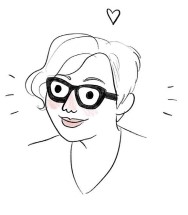
Hot Topic: Censorship and Libraries
Content warning: Discussion of potentially sensitive topics with reference to those in the LGBTQIA2S+ spectrum.
With the public dialogue in a frenzy about book banning in libraries right now, I wanted to talk about how libraries experience and interact with censorship.
You may have seen recently that the Missouri State House
voted in April to advance a FY24 budget that defunds their public libraries. You may have also seen the photos coming out of Florida
of empty school bookshelves in the wake of their governor signing HB 1467. A library director in Llano County, Texas, was fired last year for refusing to remove challenged books.
Closer to home, the Proud Boys protested a Drag Queen Story Hour event at Loyalty Bookstores in Silver Spring this past February.
I am, unfortunately, no stranger to this topic; I fielded many book challenges in Texas. This is a personal topic for me, so if the tone reads as more emotionally charged than usual, that’s because it is. There is a time and a place for emotional distance, but this article isn’t it. I want people who have the ability to advocate for libraries to understand what is at stake for everyone involved.
I can think of at least six different titles that were challenged when I was working in Texas; all of them were under the LGBTQIA2S+ umbrella, many were challenged multiple times, and all of them were intended for young audiences. There was And Tango Makes Three about the male penguin couple who adopt an egg and raise the chick together; it was returned defaced on multiple occasions. Heather Has Two Mommies inspired a boycott of our library by a local church-affiliated group, which resulted in some of the most hateful emails I have ever received.
The toughest challenge I fielded, however, was for a book called My Two Dads, which was part of a series that was all shelved together about different family situations that children may experience, like having a parent in the military or having divorced parents or living with grandparents. My Two Dads triggered a patron’s nerve in a major way.
Some quick background: I spent a year working in crisis intervention with AmeriCorps while I was deciding if I wanted to go to graduate school to become a social worker. Ultimately, I chose information science, but the year with AmeriCorps taught me a lot about de-escalating people in crisis and empathizing with them. These have been the two most useful skills I have honed when fielding difficult situations anywhere, and they are crucial to working towards positive outcomes with book challenges.
The patron who objected to My Two Dads very quickly went from
asking me how to take this book off the shelves, to yelling and crying in the middle of the reading room, when I said that we would retain the book in the interests of the LGBTQIA2S+ families who need to be represented in the library’s collection, just like her own family is. When someone reacts that disproportionately, it is almost always something more deeply rooted than the issue at hand. I talked to her long enough to find out that she had recently disowned her 16-year-old gay son and kicked him out of their family home.
Knowing that the odds are stacked against gay homeless teens, I found it extremely difficult to access empathy. I had to disengage from my emotional state to get through the rest of the interaction. The book remained in the collection, and I found another book for her to take home to the children she hadn’t disowned. On the surface, this was a positive outcome for the library—the patron calmed down, and we kept the book in our collection—but it spoke volumes about the state of our community. I went back to my office and cried.
When we talk about book banning and censorship, the objectors tend to suck all the air out of the room, but in reality, they are the ones least affected by their actions. Remember the youth who see their burgeoning identities under attack, the families who lose representation in publicly funded collections, and the teachers and library staff who go to bat for our marginalized communities every day—sometimes under the threat of firing or legal action.
Youth, their families, and the library and school workers who
provide services to them need advocates in their communities. I do believe that for every person who demands removal of a title that makes them personally uncomfortable, there are far more people who can see the value in that contested title. We need disengaged bystanders to channel the bravery of library workers who promote diverse books and programs, the teachers who refuse to compromise their inclusive values, and the kids speaking out at school board meetings.
I want these experiences to be something you think about before we get to Pride Month in June, because Pride should be a celebration! Pride is joyful, but we do a disservice to our LGBTQIA2S+ neighbors when we don’t acknowledge the oppression many people in this spectrum experience when the outspoken opponents to their identity (ugh, merely typing that phrase is painful) politicize and target them to create “us versus them” situations, manipulate their environment to minimize their own discomfort, and appeal to our worst instincts.
I could not function in this world if I didn’t believe that there is more love in it than there is hate, but sometimes, in uncontested silence, it can feel like indifference outnumbers them both. I am not so naïve as to think that this library is immune from actions taken by emboldened bullies to retain “safe spaces” for themselves while condemning the term as it is used sincerely by marginalized peoples who do not feel safe in public spaces. I hope that, if the time comes to defend our own values of diversity and inclusion, that our allies will be louder than our challengers.
This article was featured in the May 2023 Newsletter. Visit the Takoma Park Newsletter webpage to see the full list of past newsletters.
